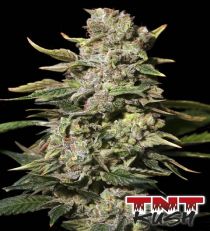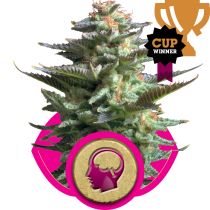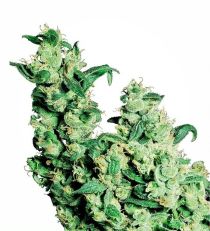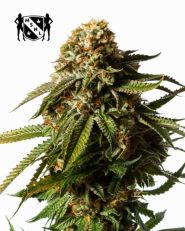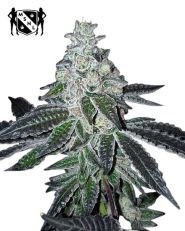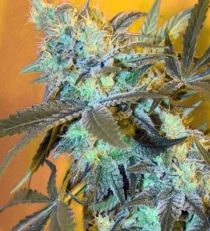 White Widow Feminized - Spliff Seeds - 5 Seeds By Spliff SeedsFrom: US$36.96
White Widow Feminized - Spliff Seeds - 5 Seeds By Spliff SeedsFrom: US$36.96- THC: 19%-22%
- Yield: 400-500gr/m²
- Flowering Time: 10-12 Weeks
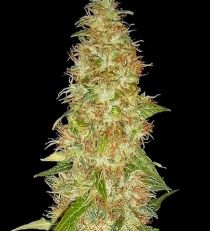 Moon Walker Kush Feminized - Spliff Seeds - 5 Seeds By Spliff SeedsFrom: US$34.32
Moon Walker Kush Feminized - Spliff Seeds - 5 Seeds By Spliff SeedsFrom: US$34.32- THC: 19%-22%
- Yield: 400-500gr/m²
- Flowering Time: 10-12 Weeks
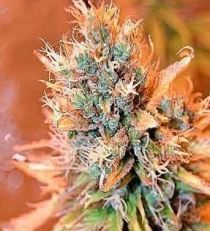 Blue Medi Kush Feminized - Spliff Seeds - 5 Seeds By Spliff SeedsFrom: US$33.00
Blue Medi Kush Feminized - Spliff Seeds - 5 Seeds By Spliff SeedsFrom: US$33.00- THC: 19%-22%
- Yield: 400-500gr/m²
- Flowering Time: 10-12 Weeks
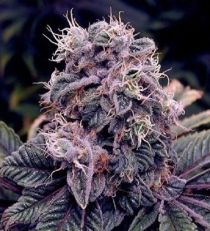 Blue Berry Regular - Spliff Seeds - 5 Seeds By Spliff SeedsFrom: US$18.48
Blue Berry Regular - Spliff Seeds - 5 Seeds By Spliff SeedsFrom: US$18.48- THC: 19%-22%
- Yield: 400-500gr/m²
- Flowering Time: 10-12 Weeks
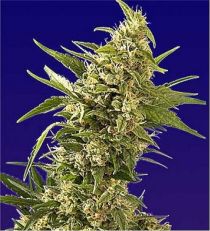 AK Regular - Spliff Seeds - 5 Seeds By Spliff SeedsFrom: US$18.48
AK Regular - Spliff Seeds - 5 Seeds By Spliff SeedsFrom: US$18.48- THC: 19%-22%
- Yield: 400-500gr/m²
- Flowering Time: 10-12 Weeks
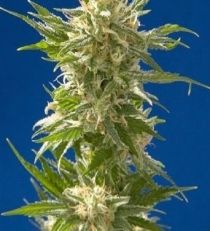 AK Feminzed - Spliff Seeds - 5 Seeds By Spliff SeedsFrom: US$34.32
AK Feminzed - Spliff Seeds - 5 Seeds By Spliff SeedsFrom: US$34.32- THC: 19%-22%
- Yield: 400-500gr/m²
- Flowering Time: 10-12 Weeks
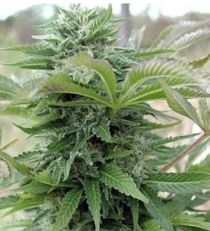 Afghani Gold Feminized - Spliff Seeds - 5 Seeds By Spliff SeedsFrom: US$27.72
Afghani Gold Feminized - Spliff Seeds - 5 Seeds By Spliff SeedsFrom: US$27.72- THC: 19%-22%
- Yield: 400-500gr/m²
- Flowering Time: 10-12 Weeks
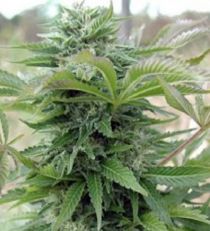 Afghan Regular - Spliff Seeds - 5 Seeds By Spliff SeedsFrom: US$13.20
Afghan Regular - Spliff Seeds - 5 Seeds By Spliff SeedsFrom: US$13.20- THC: 19%-22%
- Yield: 400-500gr/m²
- Flowering Time: 10-12 Weeks
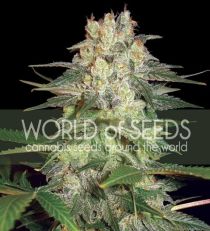 Afghan Kush Ryder Feminized by W.O.S. Seeds By World Of SeedsFrom: US$28.38
Afghan Kush Ryder Feminized by W.O.S. Seeds By World Of SeedsFrom: US$28.38- THC: 19%-22%
- Yield: 400-500gr/m²
- Flowering Time: 8-10 Weeks
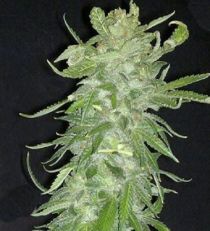 Cristal Paradise Regular - KC Brains - 5 Seeds By KC BrainsFrom: US$21.12
Cristal Paradise Regular - KC Brains - 5 Seeds By KC BrainsFrom: US$21.12- THC: 19%-22%
- Yield: 400-500gr/m²
- Flowering Time: 10-12 Weeks
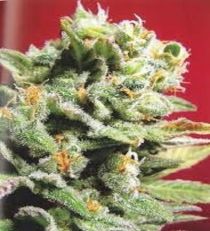 Cristal Limit Regular - KC Brains - 5 Seeds By KC BrainsFrom: US$21.12
Cristal Limit Regular - KC Brains - 5 Seeds By KC BrainsFrom: US$21.12- THC: 19%-22%
- Yield: 400-500gr/m²
- Flowering Time: 10-12 Weeks
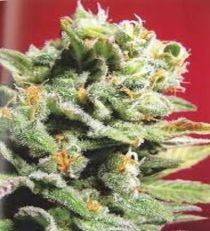 Cristal Limit Feminized - KC Brains - 5 Seeds By KC BrainsFrom: US$34.32
Cristal Limit Feminized - KC Brains - 5 Seeds By KC BrainsFrom: US$34.32- THC: 19%-22%
- Yield: 400-500gr/m²
- Flowering Time: 10-12 Weeks
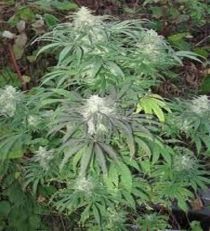 Brains Damage Regular - KC Brains - 5 Seeds By KC BrainsFrom: US$21.12
Brains Damage Regular - KC Brains - 5 Seeds By KC BrainsFrom: US$21.12- THC: 19%-22%
- Yield: 400-500gr/m²
- Flowering Time: 10-12 Weeks
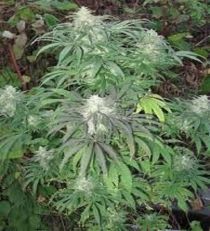 Brains Damage Feminized - KC Brains - 5 Seeds By KC BrainsFrom: US$34.32
Brains Damage Feminized - KC Brains - 5 Seeds By KC BrainsFrom: US$34.32- THC: 19%-22%
- Yield: 400-500gr/m²
- Flowering Time: 10-12 Weeks
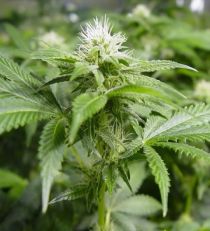 White Widow Feminized by Nirvana Seeds By NirvanaFrom: US$27.72
White Widow Feminized by Nirvana Seeds By NirvanaFrom: US$27.72- THC: 19%-22%
- Yield: 400-500gr/m²
- Flowering Time: 10-12 Weeks
Indica Seeds
Originating in the harsh environments of India, Afghanistan and Turkey, indica seeds produce plants that are known for their compact structure and faster flowering times, making them ideal for growers with limited space or shorter growing seasons. Its effects offers growers a relaxing and sedative high, perfect for evening use.
At 420 Seed Bank, we pride ourselves on providing premium quality Indica seeds. We collaborate exclusively with elite breeders, ensuring you get strong, healthy cannabis plants with every grow.
Read MoreWhat do Indica strains look like?
There are a few key appearance factors that set Indica and Sativa strains apart.
- Indica strains fan leaves are broader with fatter "fingers".
- They are usually shorter than Sativa strains and have a bushier, more compact growth pattern.
- The buds are denser and heavier and can have a thicker coating of trichomes than what is possible with Sativa cultivars.
This is due to the natural characteristics of Indica plants, which have adapted to grow in the harsher, colder climates of the Hindu Kush mountain range, the birthplace of most Indica landrace strains. These features allow them to retain heat better and protect themselves from the elements.
Their shorter stature and denser buds make them ideal for indoor growers who are a little short on space, while their hardiness makes them easier to grow outdoors in colder climates.
What are the effects of Indica strains?
Indica strains are commonly associated with soothing and sedative effects.
Most Indica dominant strains have a higher concentration of CBD than Sativa options, which is known for its relaxing and calming effects on the body and mind. This makes them popular among medical users seeking relief from pain, inflammation, anxiety, and insomnia.
The high levels of certain terpenes found in Indica strains also contribute to their distinct effects. These compounds give off unique aromas and flavor, but research also shows they can significantly enhance specific effects.
The terpene 'myrcene' is often found in elevated levels in Indica strains and is known to have calming effects, making it a desirable choice for those seeking relaxation and sleep aid.
How do you grow Indica seeds?
Pure indicas are a hardy variety of cannabis seed and they are relatively straightforward to grow....
- They tend to have a faster flowering time than Sativa strains, averaging around 8-10 weeks.
- They can thrive indoors and outdoors as long as they are provided with the right amount of light, water, and nutrients.
- Using high-quality soil or hydroponic systems is recommended for optimal growth.
- Indica plants also need a consistent temperature range between 68-77°F (20-25°C) and a humidity level of around 40-50% during the flowering stage.
- As they have adapted to colder climates, Indica plants can handle slightly lower temperatures than Sativa strains, but they can be protected from frost if growing outdoors in colder regions.
- If you are growing indoors, grab a good quality LED or HID light, and stay away from cheap low-wattage lights.
- Be careful not to overwater, as Indica strains are prone to mold, especially when those dense dank buds start to show. It's best to let the soil dry out slightly between watering.
- Always use a cannabis-specific soil mix, containing all the necessary nutrients and pH levels for healthy growth.
- If you are growing in coco-coir or with a full hydroponic set-up, always pH balance your water between 5.5 and 6.5 for the best results.
- Prune the fan leaves regularly to promote healthy growth and increase airflow, especially as Indica strains tend to be bushier than Sativa's.
- HST training techniques can make a huge difference to the final bud weight, but make sure to keep it during the vegetative growth stage.
- Placing a ScrOG net over your crop can help maximize light exposure to the lower buds, ensuring you get the maximum yield from your Indica seeds.
